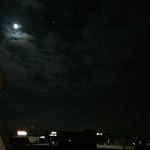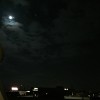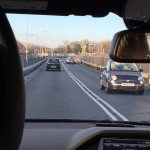I’ve been thinking a lot lately about disorientation because I just returned from a trip overseas. I think adventure is really about disorientation and I think we crave it because we long to be shaken up, surprised, and knocked out of our usual patterns – at least for a little while.
In times that are familiar, we tend to go into autopilot. Even if we practice the new mindfulness – all the rage right now – there are still plenty of areas where our brains conserve cognitive resources. We don’t have to think hard about getting around, getting along, or getting on with things because the basics don’t require our attention. From driving to shopping to chatting with others, these are things we can do without thinking.
But in these cases, we’re at risk of missing out.
I think we need some novelty in order to stay fresh and to stay tuned in. This is why we love roller coasters. This is why we pack our families up and enjoy time together in a 10×13* hotel room somewhere else, rather than just all moving into the guest room together at home and sharing day trips from there.
I read somewhere that when we experience surprise, it’s a signal to us that we’ve uncovered a bias or an assumption. “I can’t believe she said/did that,” signals that there’s something else we would have counted on. “Wow, I can’t even believe that just happened,” clues us into a way so looking at things that is already seated somewhere in our brain.
So I think that travel – or experiencing new things in whatever way we can – surprises us in a healthy way. It’s disorienting and we can’t think of things as we always have. Because everything is different.
- Cars that kept heading straight for us out of the front windshield (I had to remind myself that this is the proper side of the road for driving in the UK)
- The language (danke schön to my German colleagues)
- The food (cheek of the bull for dinner)
- Day that is night and night that is day (sleeping an entire night while the children are at home practicing soccer and eating dinner)
- Even the signage pointing the way to the airport restrooms
These are admittedly tiny things. Which is what makes them powerful. Differences are all around us and we can’t think of anything in the usual way. Everything requires just a tiny bit of additional attention. Just enough. Like Goldilocks, who wanted ‘just right’ porridge temperature, we want just enough adventure. Not to the point of danger (for most of us anyway), but just enough to stretch.
Because novelty helps us learn new things. We get a tiny window into how others experience the world. We get a lens on how it might be to make sense of things differently.
And this turns out to be very unifying. Because within this variety, we realize how much we are all very much the same. We eat, we sleep, we work, we care for our families, we love, we relate, we connect. We all admire the same moon, whether we’re in Hannover (Germany) or Holland (Michigan US).
Our humanity brings us together and a bit of disorientation helps us understand each other that much more. And it helps us understand ourselves that much more.
*The average US hotel room is 325 square feet, smaller in NY, larger on resorts, and smaller in most other parts of the world.


